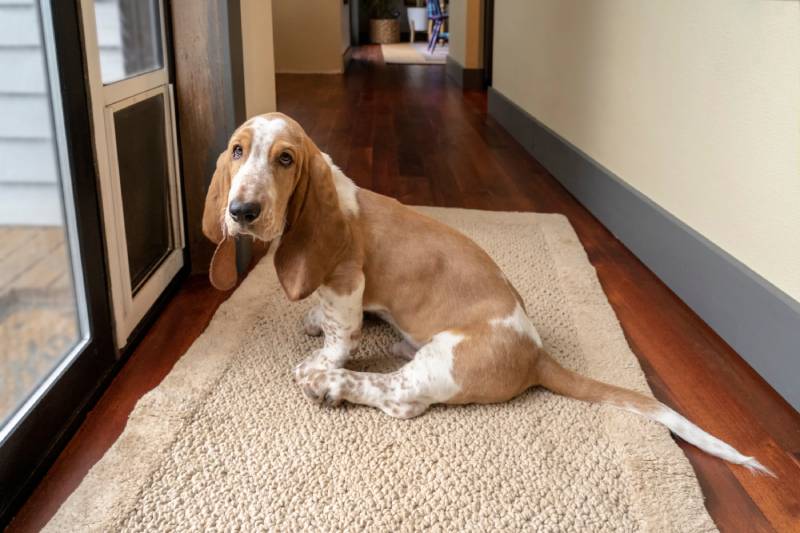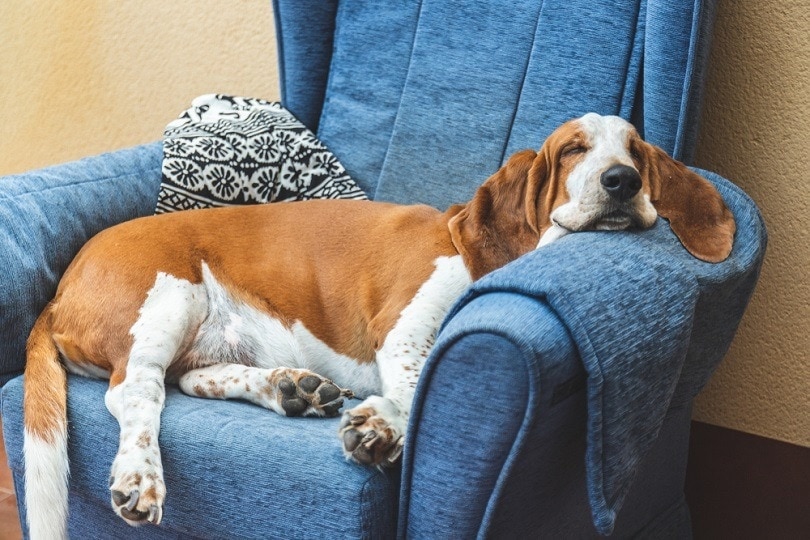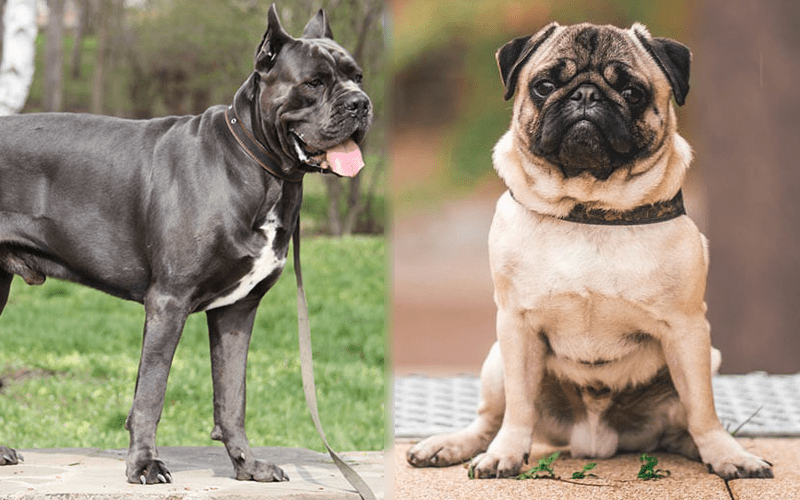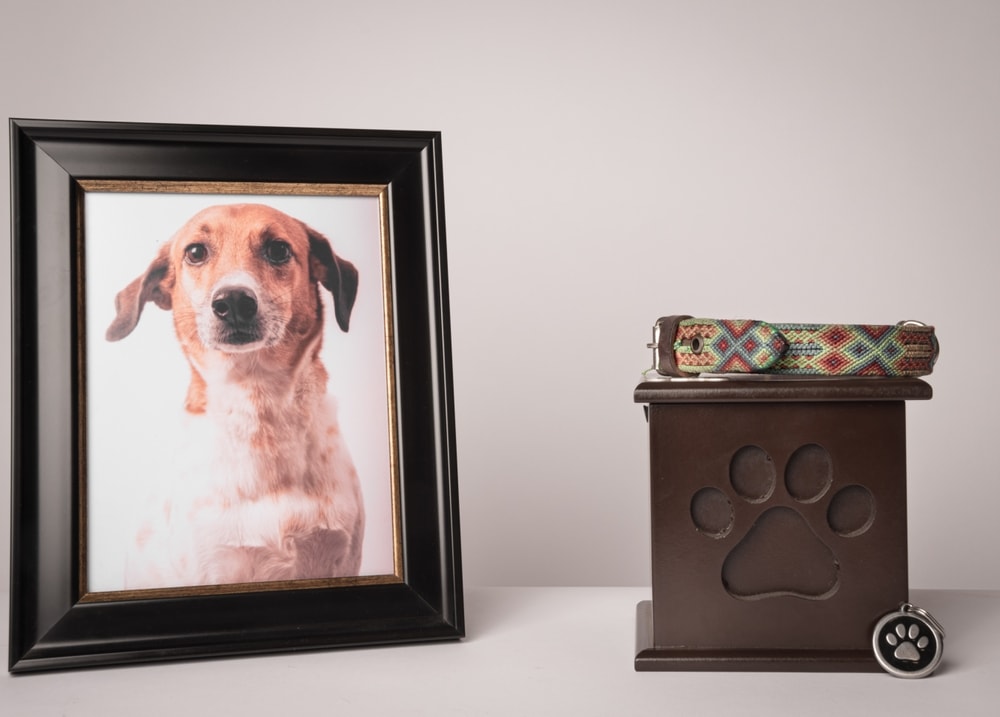Can a Basset Hound Be Left Alone? Time Limits & Considerations
Updated on

Basset Hounds are affectionate dogs that love to spend time with their owners. However, sometimes, you have to leave them alone at home. While some dogs behave well naturally, others need proper training to adapt to this situation.
You can leave your well-trained Basset Hound alone at home for short periods. But if you do this with an untrained pup, you may end up with a pet with separation anxiety. So, it’s better to leave your dog alone for short periods and increase the time as it ages. You can start with 30 minutes for new puppies and then build up to 6-8 hours once they are fully trained.
Let’s discuss in detail how long you can leave your Basset Hound alone and why it can benefit your pup.
How Long Can You Leave Your Basset Hound Alone?
The duration for leaving your Basset Hound behind depends on your dog’s health, age, and training. If your puppy is not a year old, you should not leave it alone for more than 2 hours.1
You should be extra cautious with your senior Basset Hound, as well. If it has any particular health condition, you should only leave it alone if it has supervision.
Many dog owners practice crate training with their pups from an early age. If you plan to do the same, gather a lot of patience because the process takes time. However, consistent crate training teaches your dog that it is okay to stay at home alone and you will soon return to them.

Is Leaving Your Basset Hound Alone Beneficial?
Sometimes, you have no option but to leave your Basset Hound alone. Unfortunately, many pet owners feel guilty about doing so. But did you know it can be beneficial for your pup to stay alone if done right?2 Yes, you read it right.
Here are three things that will make you feel better about leaving your basset hound alone at home:
1. Builds Confidence in Your Pet
The first benefit of giving some alone time to your pet is that it makes them confident. Do you remember the time you brought your pup home? You used to spend all your leisure time playing with them. After all, who can resist their adorable face and innocent face?
Like all dog breeds, Basset Hounds love extra attention from their owners. While it’s good to give extra care to your pet initially, doing so can make it dependent on you. In such a situation, your Basset will prefer spending and playing with only you, making them lonely when you’re not around.
Your pet will miss out on incredible opportunities to socialize and be friends with other dogs or animals. Over time, it will make your pet an introvert and less confident. No dog owner wants that.
So, allow your pet to be on their own daily to build confidence in them. When alone, they will find different ways to keep themselves occupied, enjoy their time, and learn that their parents will return after some time.
2. Makes Them Calmer
Most dogs become anxious whenever they find themselves alone. However, that’s different with pets trained to be alone. A well-trained Basset Hound knows how to calm itself.
Practice crate training with your dog and make it feel safe in the crate. Then, start leaving it alone for short periods. Remember, crate training requires lots of patience and determination. So, start with 10 minutes and then gradually increase the duration. This will help you build up your dog’s ability to adjust to its surroundings without being anxious or stressed.
Make sure to buy a sturdy, spacious crate for your Basset Hound’s full size. Since Bassets will avoid toileting in their home, they will generally avoid doing so, whenever possible. Therefore, crate training also helps you with potty training your pet.
Crates also provide a dedicated sleeping place for new pups. However, you must make it comfortable with dog pillows and blankets. You can also transform the crate into a den to appeal to your Basset Hound and make them feel relaxed in its new home.

3. Helps With Separation Anxiety
Separation anxiety is a common concern in domestic dogs. Many pets become too attached to their owners that they can’t stand a single minute without them. This shows the nature of dependence a dog has on its human parents. That’s not a good thing at all since there is no way you can be with your pet 24/7.
Therefore, many experts suggest pet owners practice their dogs with some alone time from an early age. You need to be proactive! Leaving your pet alone will make them confident and teach them how to be happy and deal with anxiety.
Leaving your Basset Hound alone will help them understand that you aren’t going forever but will return home after some time. This way, they will remain calm the entire time you won’t be home.
While the best way to train your dog for alone time is from its puppyhood, you should always take things slowly. This will allow your pet to become habitual in spending time without you. In case you leave your Basset Hound alone abruptly, it may lead to severe separation anxiety in them.
Should You Always Get Two Basset Hounds?
Dogs love to have company, so getting a pair of Basset Hounds is usually a good idea. This way, your dog won’t be bored when you leave, and you’ll get double affection. Adopting two Basset Hounds will also prevent loneliness and anxiety.
Getting two Basset Hounds is a crucial decision, and you should never take it lightly. This step won’t only come with additional responsibilities but also extra finances, energy, and time. You should also know that Bassets have a life expectancy of 10 to 12 years, meaning it is not a short-term commitment.

Tips to Train Your Basset Hound to Be Alone
You can make your pet accustomed to some alone time with proper training.
- Leave your dog alone for 10 to 15 minutes in a room and observe its reaction. Stay in the next room to reach your pup quickly if they become distressed.
- Practice crate training with your dog. A crate makes your Basset feel safe and provides them space to rest. This way, your pup feels protected even when you’re not home with them.
- Include your dog’s favorite toys in the crate to keep them occupied.
- Appreciate your pet with treats when you return home. This will encourage your Basset to spend more time alone.
- When your Basset seems accustomed to staying alone, you can gradually start increasing the duration of time in the crate. If you were leaving your pet alone for 10 minutes before, make it 30 now and slowly keep adding more time this way.
- Stay home with your pet in the initial phases of crate training, just out of sight. As they become comfortable, you can start leaving them at home.
- Before leaving your pet home, ensure they’re potty trained and fed adequately for the entire day.
- Never leave your young or senior pup alone for more than 2–4 hours daily.
Summary
Basset Hounds are usually independent dogs, but they can suffer from separation anxiety when left alone for a long time. It is better to practice crate training with your dog early. This will help them become independent and able to keep themselves busy when you’re away.
You should only leave your Basset Hound alone for 6-8 hours maximum, but this can vary for a puppy or adult. That is because dogs have basic requirements that their owners must regularly fulfill, such as timely meals, a soiling place, and playing sessions. So, be with your Basset Hound as much as possible to keep them happy and healthy!
See Also:
Featured Image Credit: Danita Delimont, Shutterstock















